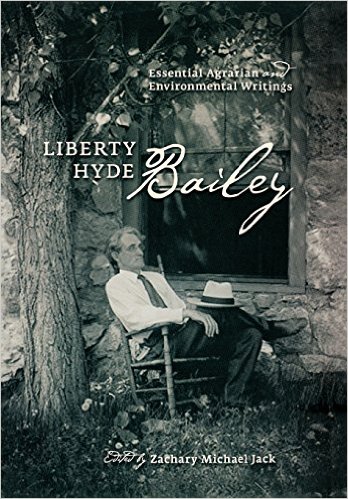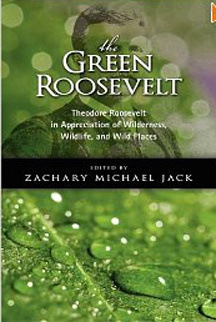 Cornell University Press recently reissued Zachary Michael Jack’s popular title Liberty Hyde Bailey: Essential Environmental and Agrarian Writings in paperback for 2016. Sample some of the many positive reviews below:
Cornell University Press recently reissued Zachary Michael Jack’s popular title Liberty Hyde Bailey: Essential Environmental and Agrarian Writings in paperback for 2016. Sample some of the many positive reviews below:
Editorial Reviews
Review
“It’s strange that Bailey (1858–1954) is not more of a household name. Teacher, botanist, horticulturist, rural sociologist, administrator, encyclopedist, poet, photographer, visionary, Bailey did a lot and wrote even more. Jack’s judicious selections and annotations provide readers with a neat digest of Bailey’s ideas on education, democracy, agriculture, nature, and community. His theme is essentially agrarian, chiefly a concern for the ills that befall people who are at a distance from the things of the earth. In a style that is at once impressionistic, scientific, and surpassingly poetic, he urges us to pay attention, or, in contemporary parlance, be mindful. His prescience is startling; for example, he wrote in 1911, ‘when the new lands have all been opened to cultivation, and when thousands of millions of human beings occupy the earth, the demand for food will constitute a problem which we scarcely apprehend today. We shall then be obliged to develop self-sustaining methods of maintaining the producing power of land.’ With a revelation on nearly every page, this collection is highly recommended for all libraries looking to bolster their environmental history collections.”―Library Journal
“I thank Zachary Michael Jack for the care and skill he exhibited in retrieving Bailey’s voice, and I look forward to revelations that will surely come among those who take the time to listen to it.” –Agricultural History
“What a great and lucky thing to have these soaring words back in print―and at exactly the right moment. It’s clear, looking at our dwindling supplies of oil, that we’re going to need more Americans doing the noble work of farming, literally following in Bailey’s footsteps.”―Bill McKibben, author of Deep Economy
“At a time when the need for environmentalism was just beginning to be recognized, Liberty Hyde Bailey was already writing passionately about the importance of a better attitude toward the land, and how the need was increasing with the expansion of urbanism. His vision spoke prophetically of the increasing need to act responsibly to the environment―a clear antecedent to Aldo Leopold’s call for an ethical relationship to the land.”―A. Carl Leopold
“This is a delightful book. The collection of essays Zachary Michael Jack has selected provide the reader with a remarkably comprehensive picture of the life and work of Liberty Hyde Bailey. The timing of this book could not be better: As we approach the end of the industrial era the prescient vision Bailey offered to us in such lyric form may now help us redefine the meaning of progress and well-being.”―Fred Kirschenmann, Director, Leopold Center for Sustainable Agriculture, Iowa State University, and President, Stone Barns Center for Food and Agriculture, Pocontico Hills, NY

